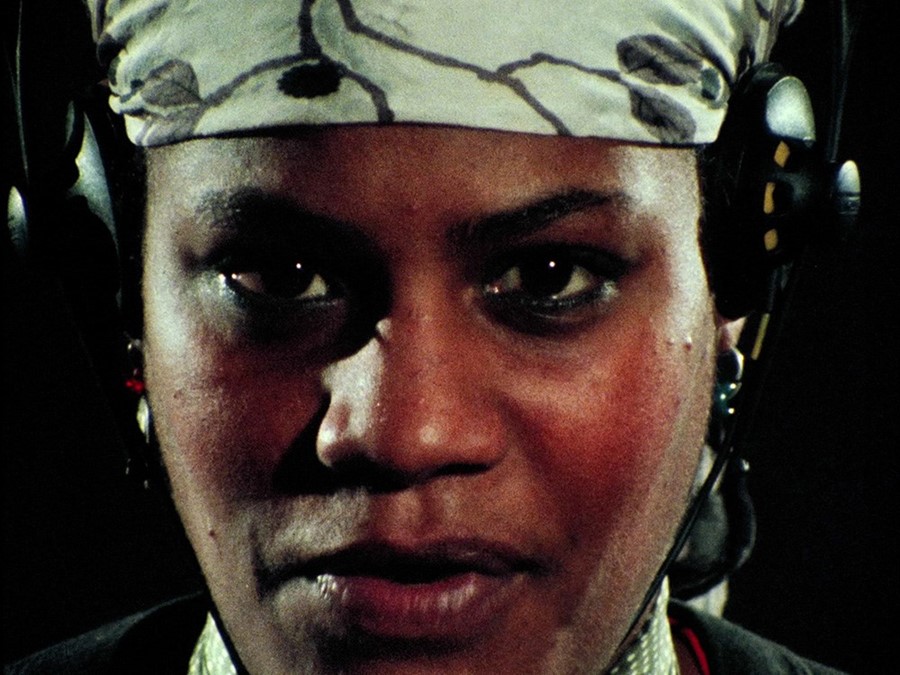As MUBI’s Dystopia season launches, James Balmont shares five classics of the genre to watch now
Consider the events of the past few years – from Trump to Brexit to the you-know-what virus. Council estates continue to be emptied in the path of gentrification, and consumerism is fuelled by targeted ads from brands and corporations alike. It’s not too hard to argue that we’re living in a dystopia right now.
But for the past half-century, at least, the most evocative images of near-future downfall have been found not on news sites and iPhone screens, but in the world of cinema. Whether they are morbid fantasies of societies in the grips of nefarious powers or vital expressions of real-world anxieties, the screen remains the most effective reminder of the depths to which we can fall without due thought given to our actions.
In 2021 we live in a world characterised by widespread health scares, economic stagnation and political controversy. MUBI’s Dystopia season, then, arrives with great timing. But while we hope that a post-pandemic society won’t resemble the likes depicted in these films, there are warnings within that can’t be ignored. And moreover, if there’s one thing to savour after a year of lockdowns and isolated living, it’s that imagination is a virtue.
Keep those fingers crossed then, that the next few years won’t look like this – and check out five dystopian classics screening on MUBI in the not-too-distant present.
Born In Flames, 1983 (lead image)
Filmed over five years on a budget of just $30,000, Lizzie Borden’s radical feminist dystopia Born In Flames portrays an alternative New York celebrating ten years of socialist revolution. But despite the media hailing widespread peace and opportunity, the pseudo-documentary quickly reveals (via pirate radio broadcasts, talking-head interviews and fly-on-the-wall shakycam footage) that divisions of sex, race and class are fast re-emerging.
“Angry unemployed people are rioting in the streets,” says one news reporter. “It’s an economic sex war,” says another, as flaws in the state’s communist-inspired employment programme inspires violence between underprivileged groups.
A women’s army, meanwhile, has turned vigilante, delivering street justice upon the men who violently abuse them. When the community’s founder reportedly commits suicide under suspicious circumstances, she becomes a martyr for the cause – and the increasingly dangerous group soon target the World Trade Center with explosives in the hopes of achieving their own revolution.
Despite a Berlin Film Festival Jury Prize win, Born In Flames remains widely under-seen – but it remains a vital study of social and political anxieties in Reagan’s America. A restoration was completed in 2016, just in time for this tale of female rebellion to take on new meaning in the divided society of Donald Trump’s presidency.
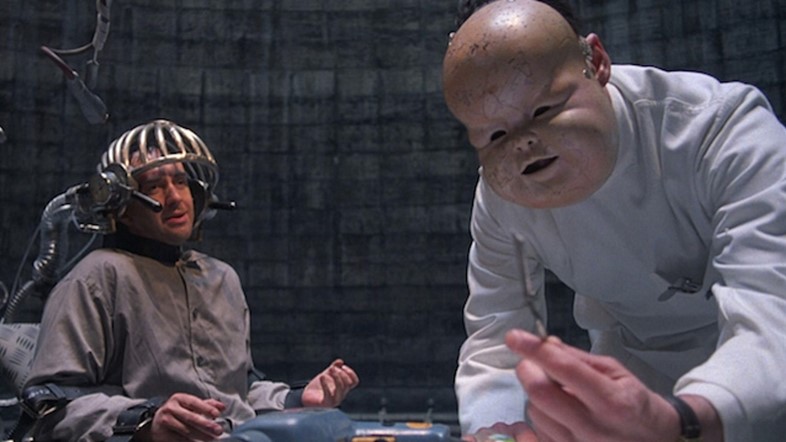
Brazil, 1985
Terry Gilliam’s bureaucratic nightmare occupies a fascinating middle ground between the works of Franz Kafka and those of George Orwell – so it makes sense that it was originally supposed to be titled 1984 ½.
In a retro-futuristic society (from the perspective of the mid-80s), fine dining means braised veal served as scoops of green goo, and high fashion is wearing a leopard-skin boot on your head. But in the vapid Shangri-La Towers and the grey walls of the Ministry of Information, the biggest obstacle is not poor taste – it’s the endless piles of paperwork that need to be signed to get anything done.
Future Bond baddie Jonathan Pryce is the bewildered everyman caught up in a plot of dreams, terrorists and lobotomies, who encounters a cast of unforgettable characters throughout a consumer-crazy police state. Bob Hoskins foreshadows his appearance in Super Mario Bros. The Movie by playing one half of a duo of pushy plumbers; Robert de Niro, meanwhile, nearly steals the show as a cigar-smoking, balaclava-wearing terrorist with a penchant for ziplines.
It all climaxes on a brilliantly bleak note – an ending that Gilliam publicly lobbied for after the studio attempted to replace it with a Hollywood happy ending. Fortunately for this timeless totalitarian classic, the man prevailed.
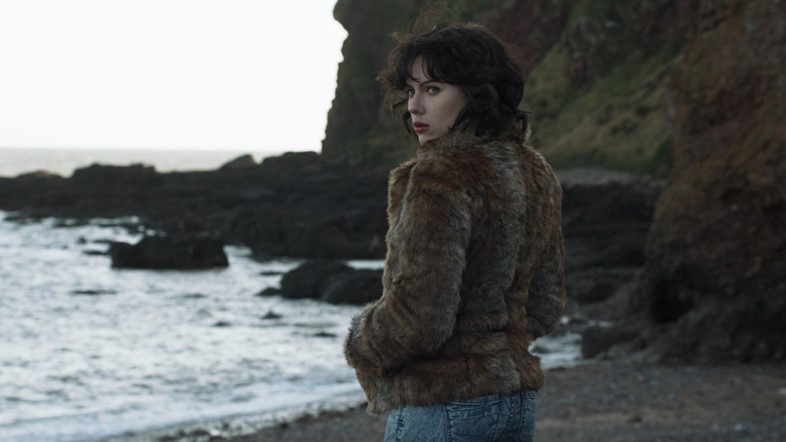
Under The Skin, 2013
A nightmarish blend of documentary and fiction, Under The Skin finds Hollywood A-lister Scarlett Johansson prowling the chilly streets of Glasgow, seducing bystanders before subjecting them to a disturbing fate. We learn that she’s an alien, devoid of empathy – at least, that is, until she begins to find herself haunted by her actions.
A stark setting, scarce dialogue and unscripted encounters with the public (prompted on a whim by director Jonathan Glazer, who communicated with Johansson via an earpiece) only bolster the film’s bleak atmosphere. But no scene is more harrowing than the tragedy on a grey beach, which leaves a vulnerable infant screaming as the tide pulls in. The whole event is witnessed with indifference by Johansson’s cold, emotionless spectator – with such an unsettling mood, it’s easy to understand why the film was booed upon its debut at Venice Film Festival.
Under The Skin also served as the film industry’s dynamic introduction to the music of Mica Levi, who would receive an Academy Award nomination just three years later for their work on Jackie. Their score here – all nails-on-chalkboard strings and synth drones – bolsters the movie’s nihilistic tone to no end, which helped it towards nominations for Best British Film and Best Original Music at the BAFTAs.
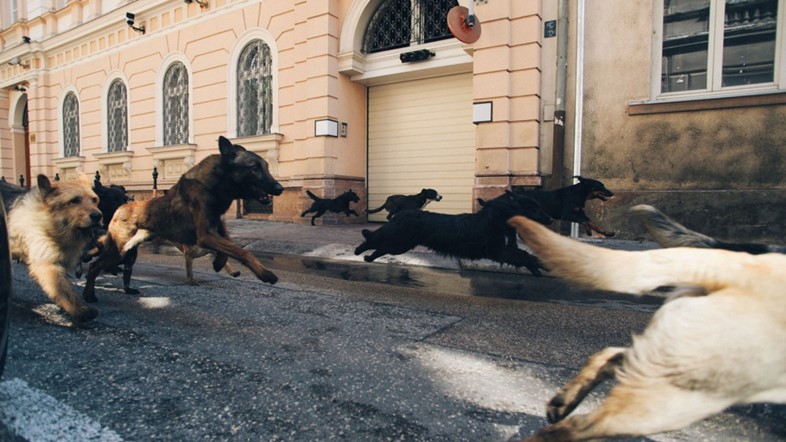
White God, 2014
“The city’s biggest animal shelter has become a battlefield”, says one bystander in this Hungarian drama about the struggles of stray dogs in a world of callous humans.
Hagen is the film’s brilliant lead – a shar pei-labrador cross, abandoned by his owner’s father who is unwilling to pay the “mongrel” fee imposed by the government. Before long, the animal is subjected to trafficking, violence and mistreatment, as what on the surface sounds like an Eastern European Homeward Bound soon turns into a nightmarish allegory for the oppression of the working class. It all climaxes with a bloody canine revolution, as a stampede of paws on deserted streets mirrors the opening to 28 Days Later (only instead of rabid zombies charging the empty roads, its doggies).
Less dystopian was the film’s production. All animal extras were recruited from a local shelter, trained and rehabilitated to become the film’s true stars. 98 per cent were rehomed after production wrapped. The film won the Un Certain Regard at Cannes in 2014, with the canine performers awarded their own prize: the Palm Dog award.
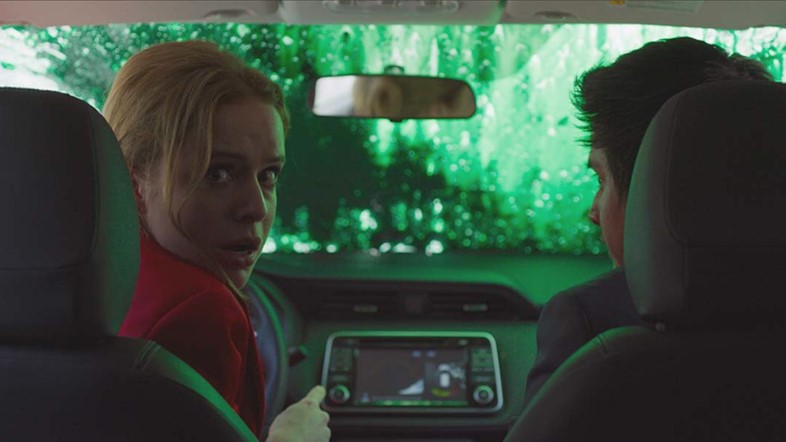
New Order, 2020
If Brazilian grindhouse feature Bacurau was MUBI’s dystopian centrepiece of 2020, then New Order feels like a gritty older brother. Deeply controversial upon its release in Mexico last year (the uproar stemmed right from the film’s trailer), this unflinching portrayal of a violent uprising went on to win the Grand Jury Prize at Venice. Such polarised readings of the film are a testament to the complex messages within.
In Mexico, a high-society wedding takes place at a modern, suburban home. The guests are predominantly white, affluent, and evidently tone-deaf to reports of violent protests in the world outside their compound. But when rioters scale the walls and begin mercilessly executing partygoers, this unflinching social revolution-in-progress quickly turns horrifying.
While the film initially makes comment on the ruling class’ lack of empathy towards the poor, New Order soon pulls back to reveal that the working class riots’ impact on wider society is just as bleak a premise. Military rule is imposed and curfews are enforced, and social liberties are soon quashed. Ultimately, there is little discrimination as the haves and have-nots suffer equally uncomfortable consequences – from homelessness and unemployment to torture and death.
Dystopia is now on MUBI. Sign up for a free 30-day MUBI film subscription below.
